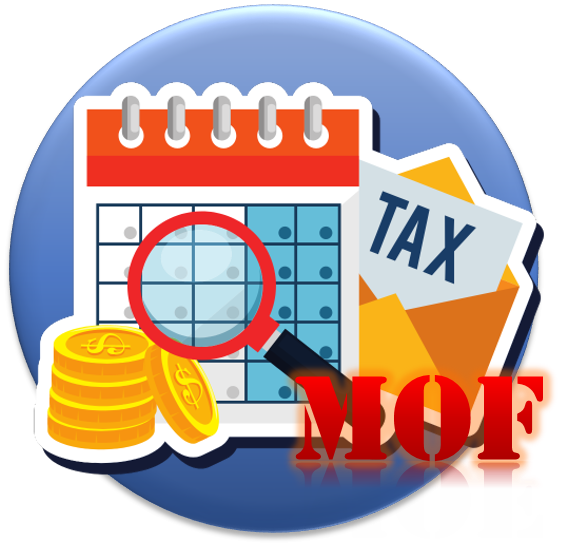
Public Notice of Decrees
Ministry Of Education

In accordance with MOE Tai-Chiao (3)No. 1070012874, Article 8, Procedures for MOE-subsidized or Designated Projects’ Budget Disbursement, insufficient personnel funds may not make use of other line items in the project budget, except for those applications approved by the MOE, salary adjusted due to the policy or relevant expenses adjusted in accordance with regulations.
To comply with the adjusted payment of remuneration to military, public and teaching personnel, the adjusted payment of remuneration to full-time administrative assistants in MOE-subsidized or designated projects shall be dealt with in accordance with the institutional administrative procedures.
The standards of “Ministry of Education Budget Drafting Standards for Subsidized or Designated Projects” are adjusted in accordance with the regulations of Central Government Expenditure established by the Executive Yuan. For salary adjustments arising from this, which do not change the total amount of subsidized or designated projects, the institution may report to the Executive Yuan in accordance with the regulations without submitting a change application.
In accordance with the MOE letter Tai-Jiao-Hui (3) 1020006216 providing additional explanation for MOE-subsidized and designated projects at institutions of higher education under the GRB (Government Research Bulletin) restrictions, the standards for flexible expenditures quota are as follows:
-
The flexible expenditures quota is calculated as 2% of MOE approved project sum and is limited to 25,000 NTD. This is not affected by the schedule of projects.
-
During project execution period, no further adjustment for the flexible expenditure quota will be made even if there are approved additional or reduced expenses.
-
Once the project is uploaded to the GRB, the system will automatically send notices to all principle investigators about the maximum available flexible expenditures for each project.
Ministry Of Finance
Effective from December 28, 2017, The Taxpayer Rights Protection Act states “The expense that taxpayers pay for maintaining their basic living in accordance with human dignity for themselves and their dependents shall not be taxed.” When filing income tax in accordance with the Income Tax Act, foreign taxpayers should calculate the total basic living expenses of the taxpayer, spouse and dependent based on the basic living expenses of the taxable year announced by the responsible central government unit. If the total living expense exceeds the total amount of all combined deductions, the overage can be added to the amount of overall deduction. (As regulated by the Income Tax Act, the total deduction amount is the sum of exemption, standard deduction or itemized deduction (choose one of the two), and special deductions from the total income for the taxpayer, spouse and dependents.
Eoreigners who leave Taiwan in the middle of the year and do not return are required to file the income tax of the year during which they left in accordance with Article 71-1 of the Income Tax Act. Based on Article 17-1 of the Income Tax Act and official order No. 10604720580 announced on March 20, 2018, the deductible amounts of tax exemption and standard deductions for him (her) shall be computed respectively in proportion to the ratio between the number of days of his residing in the territory of the Republic of China in that year and the total number of days of said taxable year.
According to National Taxation Bureau of Taipei, Ministry of Finance, “The Taxpayer Rights Protection Act” was implemented on December 28, 2017 for the purposes of implementing the protection of survival rights, work rights, property rights, and other relevant basic rights according to the Constitution of the Republic of China, insuring rights of taxpayers, achieving tax equity, and carrying out the due process of the law.
The Bureau explained that the Taxpayer Rights Protection Act is a special law, the provisions of which shall be followed preferentially in order to protect taxpayer’s rights. Other existing regulations shall be followed first; then matters not thus covered will be dealt with in accordance with this Act for making up insufficient regulations and dealing with any conflict in applying those regulations. There are five key points in this Act:
- No tax on basic living expenses
- Implement due process of law
- Fair and reasonable taxation
- Establish taxpayer rights’ protection organization
- Enhance the assistance and protection for taxpayer
The Tax Bureau reminds taxpayers that they may request assistance from the Taxpayer Rights Protection authority under the following conditions:
- Please ask for assistance with communicating and coordinating with the relevant tax organizations when any tax issues arise.
- Ask for assistance of appeal or petition when rights are infringed upon.
- Ask for assistance of counseling and help when applying for administrative assistance in accordance with the relevant regulations

Executive Yuan

Based on official document Tai-Hui-Zong II No.1010071206, effective immediately, research project flexible budget should be listed under operating expenses.
- For applicable research projects, MOS will list those with approved budgets.
- Applicable to projects under execution since October 1, 2012.
- The flexible budget maximum limit is 2% of the annual budget or NTD 25,000. Budget should be cut to half when the project duration is less than 6 months. For long-term research plans, the budget is to be calculated by the year, but can be used over the whole term of the research project. Budgeted funds may not be reserved and cannot be transferred to another organization for reimbursement.
- Flexible budget should be listed under operating expenses. For projects without operating expenses, the budget may be adjusted among other expense items after being approved through internal administrative process.
- relaxed expenditure restrictions on project-related transportation expenses, overseas guest reception expenses or international exchange expenses should follow current regulations established by the Executive Yuan, unless the regulation states “the item is not regulated by the Executive Yuan.”
- The dining and gifts expenses spent on overseas guests are not restricted by Article 4, item 4 and 5 of MOS Research Project Budget Operation Guidelines.
- For items not restricted by Executive Yuan guidelines, aside from hiring overseas professionals and scholars, any differences between the actual expenses and the school standards should be listed, and the total expenses of each item should be reimbursed under flexible budget.
- Budget expenditure should be verified with original receipts; Principal Investigator is responsible for the authenticity of the receipts and verifying documents.
In accordance with the letter Tai-Hui-He 1020010276, when executing “inviting international technological talents for short visit” wherein supplementary premiums are charged and born by the insured units (employers), the supplementary premiums will be issued separately.
For those projects that did not include supplementary premiums in the first place, the cost may be paid from original subsidies. If the original subsidies are insufficient, the university may reclaim the costs when reporting project results.
